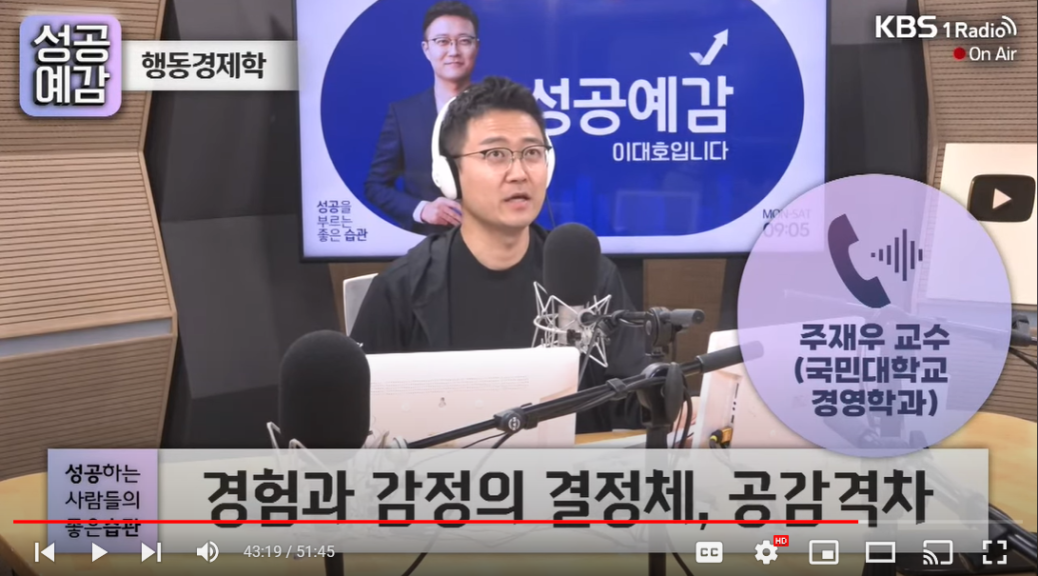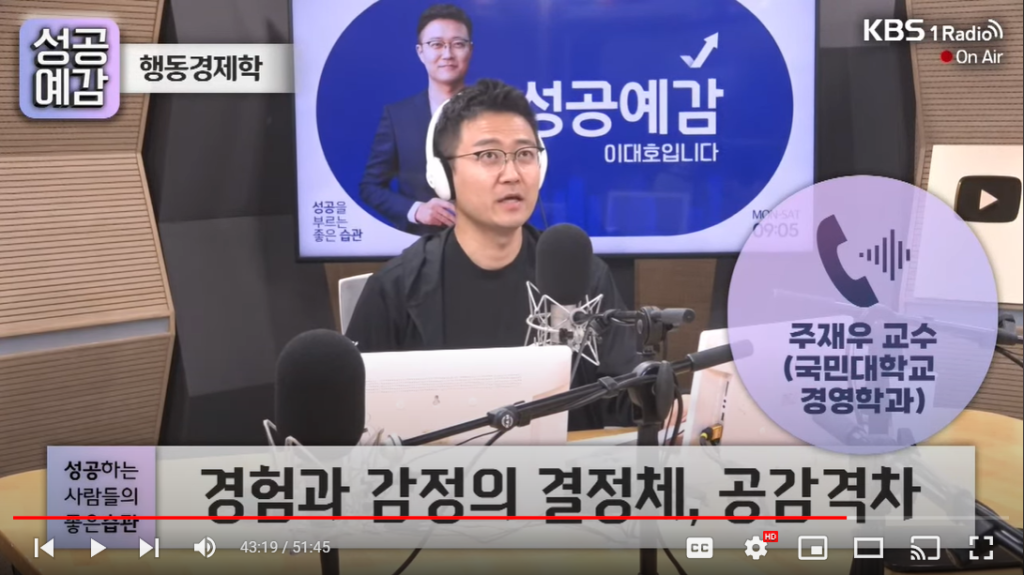2020년 코로나 이후 군대에 가려는 미국 사람이 급격하게 감소했습니다. 미군은 더 많은 모병을 위해, 최대 5만 달러의 특별 상여금을 지급하거나, 특정 기술을 보유한 신병이 6년 복무를 계약할 경우 수급 자격을 주는 혜택을 내놓았습니다. 하지만 경제적인 유인책이 큰 효과를 가져오지 못했습니다. 대신, 모집 인원을 늘리는 답은 영화에 있었습니다…
이 사례는 공감격차 (hot-cold empathy gap) 이론을 설명해줍니다. 인간은일반적으로 (차갑고) 이성적이지만, 경험하는 순간에는 (뜨겁고) 동물이 됩니다. 즉, 무언가 경험하는 순간에는, 거부할 수 없는 내장에서 올라오는 요소 (visceral state) 에 지배당합니다. 이러한 요소에는 고통, 성적 충동, 목마름, 배고픔, 졸림, 호기심, 부끄러움, 두려움, 화남 등이 포함됩니다…
2023.09.07
*행동경제학
경험과 감정의 결정체, #공감격차
– 본능(Hot)과 이성(Cold)의 차이와 선택에의 기능
– #진로 , #직업결정 , 오해 등의 원인인 공감격차
– #주재우 교수 (국민대학교 경영학과) #kbs1라디오 #라디오 #KBS라디오 #시사라디오 #KBS1Radio #성공예감이대호입니다 #성공예감 #이대호
***
Reference
Loewenstein, G. F. (1996). Out of control: Visceral influences on behavior. Organizational Behavior and Human Decision Processes, 65(3), 272–292.
Abstract
Understanding discrepancies between behavior and perceived self-interest has been one of the major, but largely untackled, theoretical challenges confronting decision theory from its infancy to the present. People often act against their self-interest in full knowledge that they are doing so; they experience a feeling of being “out of control.” This paper attributes this phenomenon to the operation of “visceral factors,” which include drive states such as hunger, thirst and sexual desire, moods and emotions, physical pain, and craving for a drug one is addicted to. The defining characteristics of visceral factors are, first, a direct hedonic impact (which is usually negative), and second, an effect on the relative desirability of different goods and actions. The largely aversive experience of hunger, for example, affects the desirability of eating, but also of other activities such as sex. Likewise, fear and pain are both aversive, and both increase the desirability of withdrawal behaviors. The visceral factor perspective has two central premises: First, immediately experienced visceral factors have a disproportionate effect on behavior and tend to “crowd out” virtually all goals other than that of mitigating the visceral factor. Second, people underweigh, or even ignore, visceral factors that they will experience in the future, have experienced in the past, or that are experienced by other people. The paper details these two assumptions, then shows how they can help to explain a wide range of phenomena: impulsivity and self-control, drug addiction, various anomalies concerning sexual behavior, the effect of vividness on decision making, and certain phenomena relating to motivation and action.

